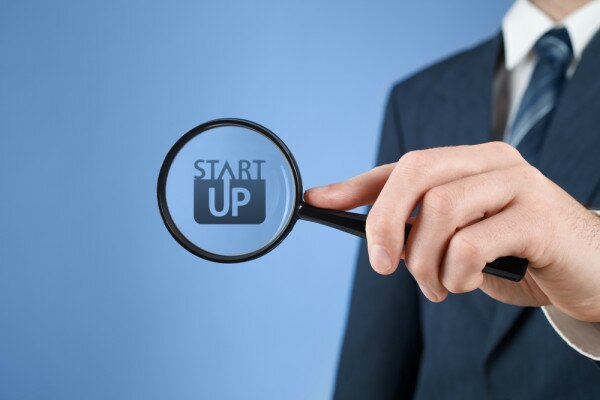
African startups have seen a wave of investment this week, with over US$40 million being awarded and over US$200 million in the pipeline.
Kenyan startup M-KOPA Solar has received US$20 million in its latest round of funding, a boost that will enable the company to increase the number of households it services to one million by 2018.
The funding includes a US$10 million syndicated debt facility provided by Commercial Bank of Africa (CBA), as well as grants from United Kingdom’s Department for International Development (DFID), the Bill & Melinda Gates Foundation and the Shell Foundation.
Five startups in Kenya, Uganda and Nigeria have been awarded grants by Microsoft as part of their 4Afrika programme.
The startups include mobile technology solutions provider access.mobile LLC from Uganda, mobile directory service Africa 118 and digital textbook leasing application firm Kytabu from Kenya, and mobile game producer Gamsole and online saving platform Save & Buy from Nigeria.
Gamsole said it would be hiring new developers and expecting growth as a result of the 4Afrika funding.
foodpanda and affiliated Nigerian brand hellofood have announced US$20 million in new funding, earmarked for expansion to Tanzania, Uganda and several other countries.
In a statement, foodpanda said the funding – secured from a group of investors including Phenomen Ventures – would be used to continue the brand’s global rollout in 2014.
“With the new investment foodpanda is aiming to continue its global ambitions and roll out to over 40 markets by the end of Q1. The company is currently operating in four continents,” the company said.
While some startups succeed, others unfortunately fail. Kenyan mobile job listing service M-kazi has terminated its operations after billing issues with Safaricom.
The company made use of USSD codes that allowed users to receive job updates and submit a simplified version of their CVs once a vacancy was found. Employers could then access the system to view submitted applications.
Paidtrends.com, a new platform that rewards registered users for publishing adverts with their social media accounts, has been launched in Nigeria.
In an interview with HumanIPO, co-founder Ekele Abel said the platform is crowd-sourced and users can sign up with their Facebook or Twitter accounts.
A Q&A with Abel can be found here.
CapitalSquare, a co-working space in Lagos, Nigeria, has announced it will hold its first Demo Day next month.
According to a statement posted on its website, CapitalSquare said the event would be held on the first Tuesday of every month.
Nigeria is also set to host the inaugural edition of Angel Fair West Africa, an event that will feature 100 local and foreign investors and entrepreneurs.
Scheduled for March 30 and 31, the fair is organised by the Angel Africa List (AAL) in partnership with the Lagos Angel Network (LAN) and the African Venture Capital Association (AVCA).
Secure online payments platform 3G Direct Pay and Kenyan merchant services startup Kopo Kopo have partnered to facilitate mobile money payments for the travel industry.
The partnership with Kopo Kopo will allow 3G Direct Pay consumers in Kenya, Tanzania, Uganda and Zanzibar to safely pay for travel via mobile money, and extends 3G Direct Pay’s portfolio of secure payment solutions to include mobile money for the first time.
Google has announced the 20 semi-finalists of its Africa Connected competition, with Kenyan and South African applicants featuring prominently on the shortlist.
Launched in August 2013, the competition asked applicants to explain how they have used internet tools to change their businesses and by extension their daily lives.
Rocket Internet-owned e-commerce platform Jumia has made Uganda the sixth African country in which it operates.
“After the purchase has been completed online [at www.jumia.ug] it will be delivered directly to the customer’s doorstep. The payment is made in cash once the goods have been received, a method which is called ‘Cash-On-Delivery’ (COD) and if the customer desires to return, Jumia offers an easy and stress-free returns policy,” the company said.
South African startup ApexPeak is raising a $200 million investment fund, allowing investors to achieve above average return on investments on short-term loans.
The startup provides a platform for small to medium enterprises (SMEs) with invoices to blue-chip companies to sell their statements in order to get paid sooner.
“The US$200 million fund is being established to ensure more reliable liquidity for hundreds of SMEs, enabling them in turn, to grow and create wealth and jobs,” the company said.
Also in South Africa, mobile taxi hailing startup Zapacab has unveiled native apps for Android and iOS devices, responding to consumer demand for “clever simple apps”.
Chief executive officer (CEO) Rupert Sully told HumanIPO Zapacab – which launched in Cape Town last year – decided to launch apps following numerous requests from customers, who prefer apps over mobile sites.
And finally, South African startup e-Mbizo aims to provide free Wi-Fi to communities and schools in townships and rural areas, bridging the divide in connectivity.
The company provides free and accessible internet access for social, developmental and educational purposes.
“There is a data limit to the free Wi-Fi but if one would like to access the uncapped premium service, there are different payment schemes,” said Thabo Malebadi, chief executive officer (CEO) of e-Mbizo.
Image courtesy of Shutterstock.

















